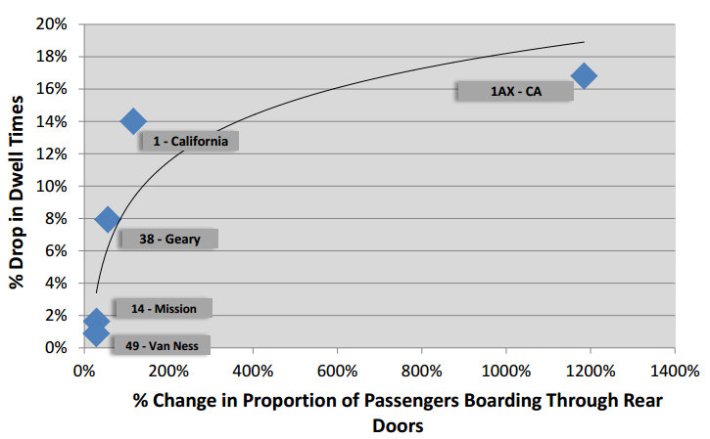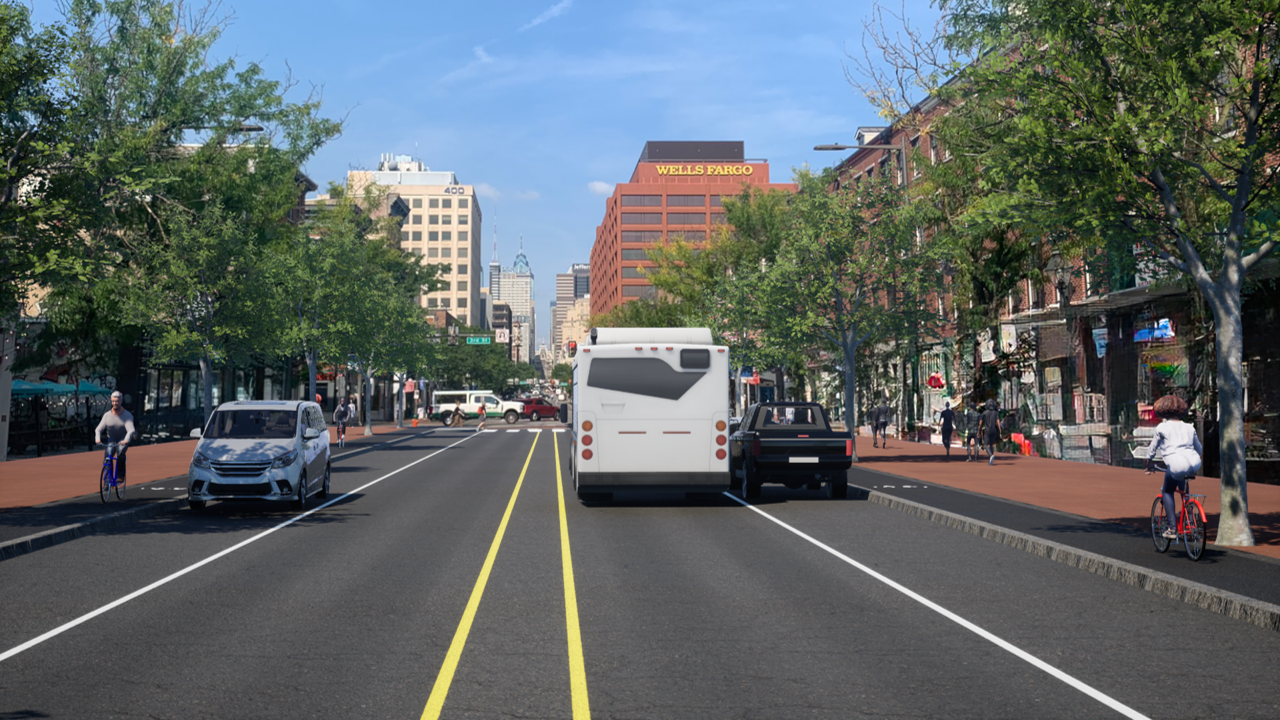
One month after the SF Municipal Transportation Agency switched to system-wide all-door boarding, an early report from the agency shows some significant increases in bus speeds.
On five Muni lines, the time buses spent at stops dropped by as much as 16 percent in July compared to June, according to a presentation [PDF] prepared for the SFMTA Board's Policy and Governance Committee meeting this week. The most drastic change in "dwell times" were reported on the 1-California line and its rush-hour express companion, the 1AX, which saw decreases of 14 and 16 percent, respectively. The 1AX also saw by far the largest shift in passengers using the back door instead of the front door, with a 1,200 percent increase.
The other lines reviewed -- the 49-Van Ness, the 14-Mission, and the 38-Geary -- saw more modest drops in dwell time. The 49, at the low end of the spectrum, only saw a decrease of roughly 1 percent. One possible explanation is that back-door boarding was already common on those lines before the policy change, compared to the 1-California.
Reducing the amount of time that buses devote to passenger boarding was the main reason behind Muni's switch to all-door boarding, as SF buses have historically spent as much as 30 percent of their runs at stops.
The change is also expected to reduce fare evasion by implementing a proof-of-payment system, which uses random fare inspections to enforce payment. The system has been successful on Muni's light rail lines for more than a decade. However, it's unclear if the ten additional fare inspectors hired by Muni (bringing the total up to 60) are enough to effectively eliminate the sense of security for fare evaders who make it onboard.
The SFMTA presentation says the agency is measuring changes in fare revenue, but the only data available yet are from passenger complaints. Of the 58 complaints "attributed to all-door boarding," the presentation says, 9 percent were about a perceived increase in fare evasion.
The most common complaint category, at 64 percent, was regarding Muni operators not opening back doors to allow boarding. The other major categories were "operators closing doors on passengers" and "express rider complaints about the policy," each comprising 10 percent of complaints.
More details may become available when the report is presented to the committee on Friday.






